Our People: Detroit Operator Continuously Challenges Herself
Published 03-15-23
Submitted by Marathon Petroleum Corp.
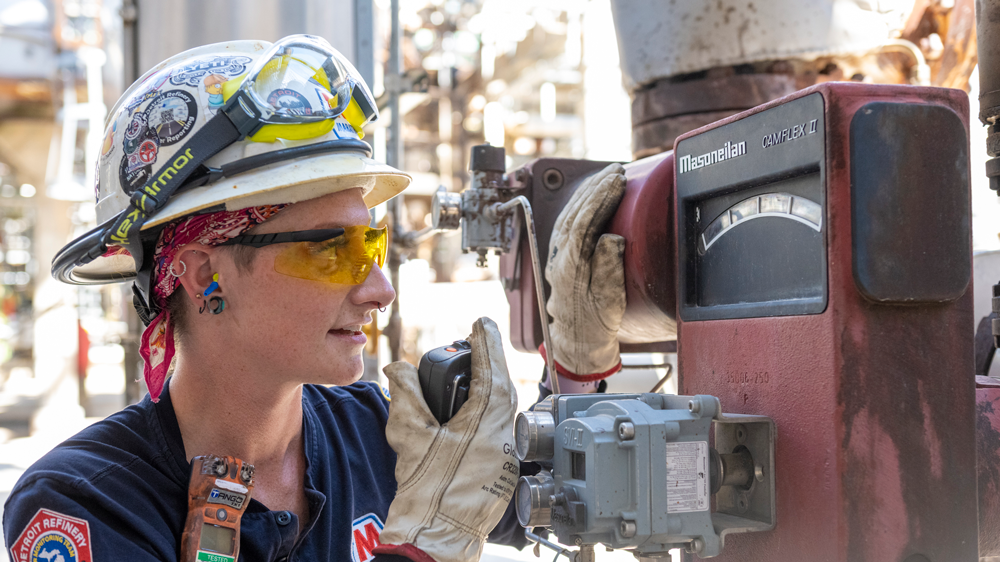
- Detroit refinery Operator Tara Chippewa is inspiring her children, her family and others in the industrial field to pursue their passions and goals, even if it is in a non-traditional role.
- Chippewa discovered she loved working with her hands as a child, which led her participate in the refinery’s summer program after high school, attend school for welding, and then begin a career at the refinery where she is now double qualified as a field equipment operator and board operator.
- As she does in her career, Chippewa takes on challenges and explores unexpected paths like working to become top 5 in her designated class in the Highland Games caber toss.
Tara Chippewa loves that she is following in the footsteps of other great operators at Marathon Petroleum’s Detroit refinery. She’s worked hard to prove herself and now she enjoys showing other women that they can accomplish their goals, even if it’s doing something unexpected.
From welding to competing in the Highland Games, Chippewa has always enjoyed a variety of non-traditional jobs and hobbies.
“I like setting the example for my kids that it doesn’t matter what kind of job it is. If you want it, you can go get it,” said Chippewa.
“I want other girls and women to see people like me working in the industrial field and know they can do it, too. It’s all about empowering women and resetting what’s normal.”
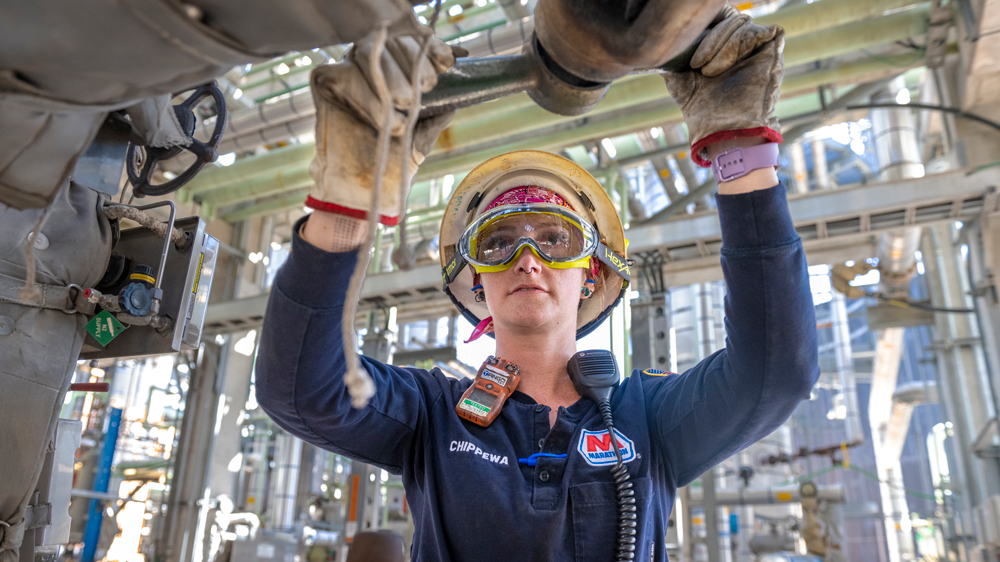
The early years
Growing up, Chippewa spent a lot of time with her grandfather, an oil rigger in the 1990s. She had her own little hard hat and would visit rigs with him. Her uncle ran an autobody shop, and her father worked at the Detroit refinery. She grew up farming and fishing. She loved to watch welders work. She discovered that she enjoyed working with her hands and that she was good at it.
“I used to call her a pocket-sized Hercules,” said Ray Richardson, Chippewa’s father and retired Operator and Training Specialist. “She’s always accepted a challenge. If you tell her she can’t do something, she’ll prove you wrong every time.”
Ray Richardson retired from the Detroit refinery in 2020. He loved his career there and wanted to share the career opportunities he had with his children.
“When my dad was working at the refinery, I participated in the Summer Helper program for employees’ children who had just graduated high school and were enrolled in college,” said Chippewa. “It was 2012, a year the refinery was undergoing a major maintenance event. That’s when I realized I wanted to work in the industrial field.”
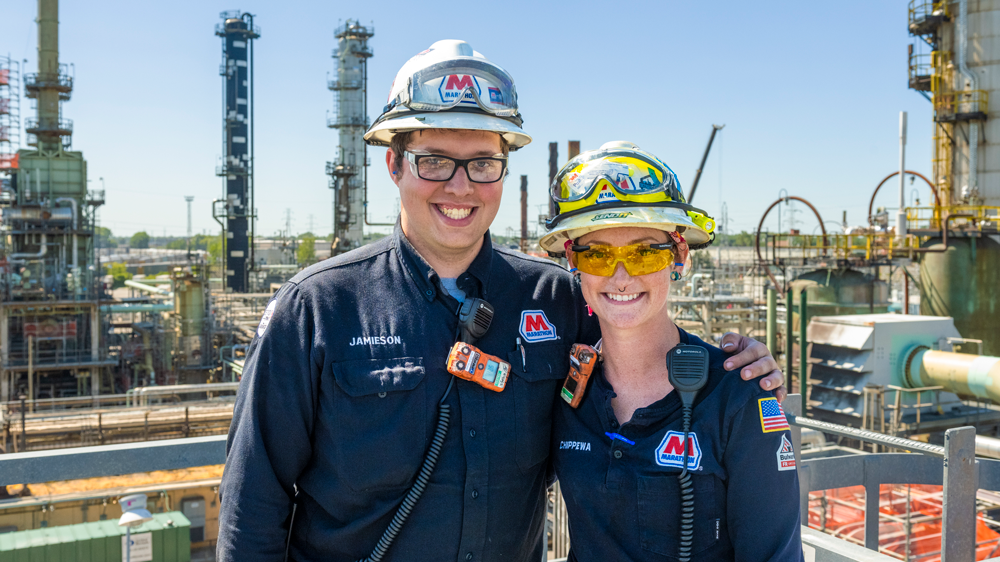
Life at the refinery
Chippewa went to school to learn welding. After a year working as a welder, she applied for a position with Marathon Petroleum, which her father agreed was a good decision on her part.
“There’s a level of safety at the refinery that I felt my kids could work there,” said Richardson. “Marathon’s commitment to safety has always been very high. Marathon has been steadfast in keeping their refineries safe.”
Chippewa is now a qualified board operator and a qualified field equipment operator, which requires extra time and training to accomplish.
“We train for at least nine months or longer to be a field equipment operator,” said Chippewa. “Then after two years, you can become a board operator. That’s another six months of training. Then you become qualified, and I’m qualified in both roles.”
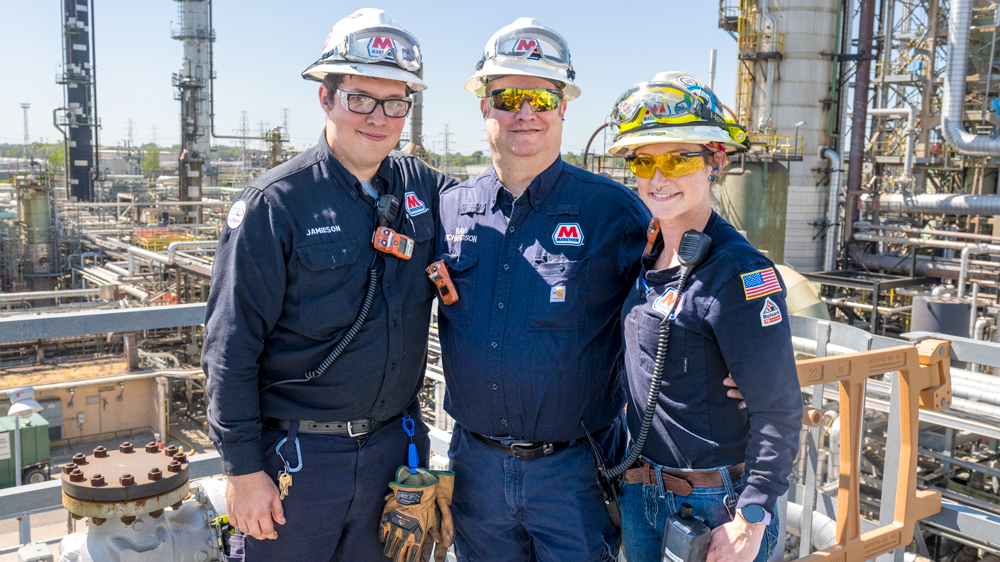
Chippewa said being qualified in both roles means that when the refinery is fully staffed, she can help with projects and has stepped up as foreman a few times. She also fills in for other employees when they are on vacation or out sick.
“I like that my routine is that there is no routine,” said Chippewa. “I do different stuff every day.”
She loves her job so much, she convinced her brother Jamieson Richardson to apply for a job at the refinery, because it offered better pay, better insurance and a better work schedule than what he had. Richardson was glad he listened. As a field equipment operator at a different complex at the refinery, he enjoys the opportunities to learn about the refining process and how the equipment works. When he started, he was told he had big shoes to fill in order to be as good as Chippewa.
“Now we have what I call Operators Dinners with my dad and my brother,” said Chippewa. “We get together and talk about work stuff. It’s great to be able to share and ask questions. We’ve bonded in that way.”
Chippewa has also taken a lead at the refinery, speaking on a women’s employee network panel at the refinery hosted during Women’s History Month, and working with the safety team on finding personal protective equipment sized for women.
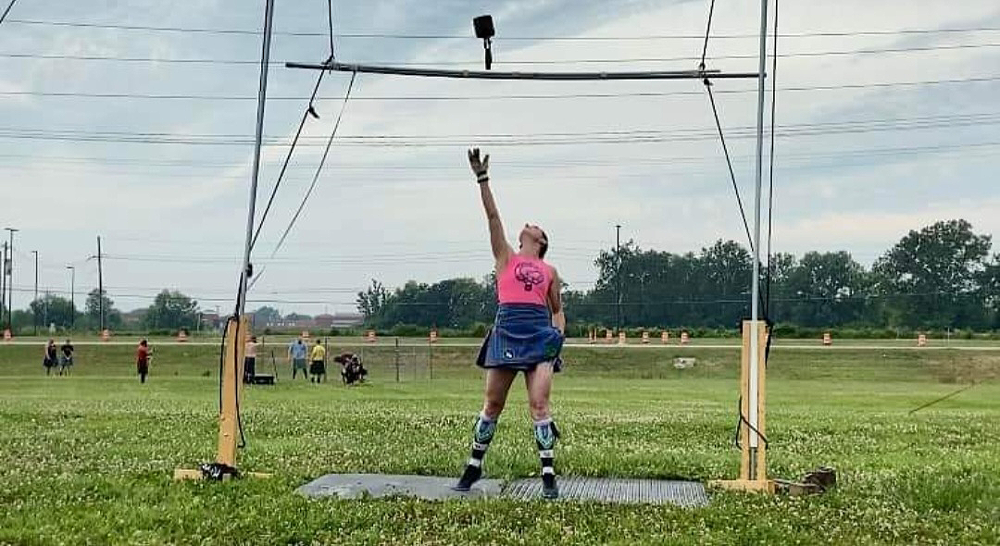
Extra-curricular activities
Outside of work, Chippewa’s interest in doing the unexpected continues. She’s started competing in the Scottish Highland Games throwing a large, tapered pole called a caber.
“It is typically a male-dominated sport, but I’ve seen more women participating,” said Chippewa. “I work in a job that most women don’t work. Now I’m a class C (amateur) in the Highland Games and ranked 40th in North America in women’s caber toss. My goal is to make the top 5 in the Lightweight class next year.”
As a mother of two, Chippewa strives to set a positive example for her son and daughter and teach them that they can do whatever they set their mind to doing. She also encourages other females to understand what they really like to do and follow that passion.
“She’s just a fantastic human being,” said Jamieson Richardson. “She tries very hard and has succeeded in being a good role model – even for myself and my children.”
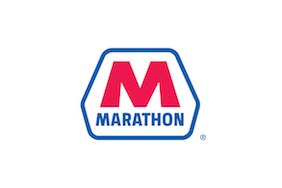
Marathon Petroleum Corp.
Marathon Petroleum Corp.
Marathon Petroleum Corporation (MPC) is a leading, integrated, downstream energy company headquartered in Findlay, Ohio. The company operates the nation's largest refining system. MPC's marketing system includes branded locations across the United States, including Marathon brand retail outlets. MPC also owns the general partner and majority limited partner interest in MPLX LP, a midstream company that owns and operates gathering, processing, and fractionation assets, as well as crude oil and light product transportation and logistics infrastructure.
Environmental, Social and Governance Highlights
Our commitment to sustainability means striving to create shared value with our stakeholders — empowering people to achieve more, contributing to progress in our communities and protecting the environment we all share.
Our Approach
Strengthen Resiliency: Strengthening our business for today, while building durability for the future.
Innovate for the Future: Investing in the energy evolution to lower carbon intensity and capture value.
Embed Sustainability: Embracing sustainability in decision-making, in how we engage our people and in how we create value with stakeholders.
More from Marathon Petroleum Corp.

